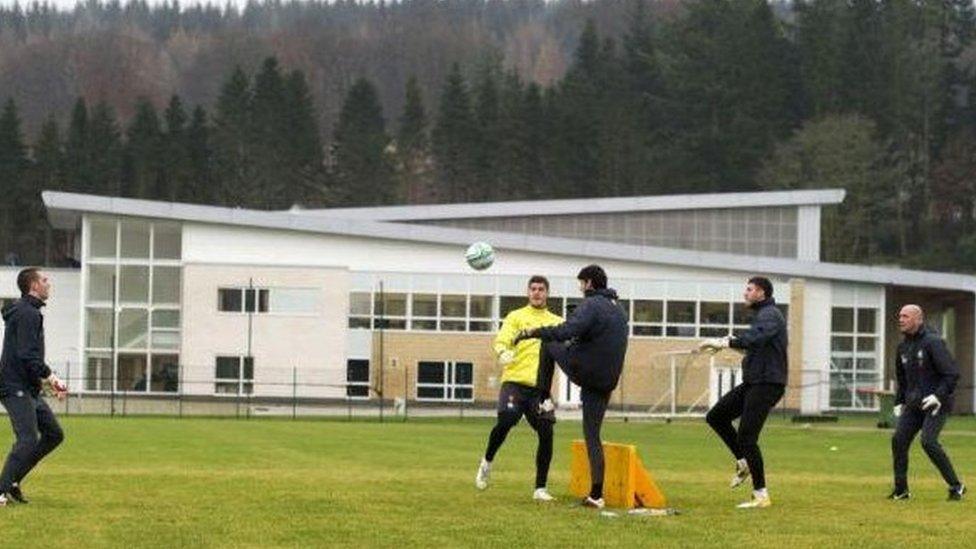'No fraud' over Celtic's Lennoxtown land deal says Audit Scotland
- Published

Celtic's Lennoxtown training complex opened in 2007
Scotland's public spending watchdog has found no evidence of fraud or corruption in Celtic's purchase of land for their Lennoxtown training complex.
Complaints were made to Audit Scotland over the 2006 deal between NHS Greater Glasgow and Clyde (GGC) and Celtic.
They focused on public cash paid to Celtic for providing community services and access to the new facilities.
Audit Scotland found no wrongdoing but said poor value-for-money oversight had given rise to valid questions.
The complaints involved the role of the Lennoxtown Initiative, a community regeneration company and registered charity which was formed in 2001.
Land sale
It operated as a partnership between the local community, NHS GGC, East Dunbartonshire Council and Scottish Enterprise Dunbartonshire.
Some of the initiative's work was funded by proceeds from the sale of land at the site of Lennox Castle Hospital, which was closed in 2002.
In June 2006, Celtic paid NHS GGC £493,000 for a part of the site, where it opened a £8.5m training complex the following year.
Part of the deal included a service level agreement (SLA) with Celtic to provide a range of community services through the training centre, including access to facilities for local groups, coaching, and other activities.
Up to June 2013, Celtic were due to be paid more than £500,000 for providing these services.
In 2014 and 2015, a number of complaints were made to Audit Scotland concerning the deal.
'Poor management'
The watchdog began an investigation in March and has now concluded: "We have not identified any evidence that the purchase of the Lennoxtown site or the transfer of funds from the Lennoxtown Initiative to Celtic was either fraudulent or corrupt.
"However, poor management practice on the part of the Lennoxtown Initiative and the relevant public bodies involved in it has at the very least allowed accusations to be made and valid questions to be asked."
Audit Scotland's report noted that "there were certainly services delivered by Celtic as envisaged" but there was "insufficient evidence to say whether these were at an appropriate level or quality, or if they represented value for money".
The report, external said that "other than the activities themselves taking place" and mention of them in the minutes of the Lennoxtown Initiative, it could "find no evaluation or record of the public value, which has accrued to the Lennoxtown area in return for public money spent".
It concluded: "Given these were key objectives for the Lennoxtown Initiative, and indeed for the public bodies involved, we would have expected those concerned to have had a considerable interest in monitoring and evaluating the extent to which the service level agreement with Celtic was contributing to these outcomes."